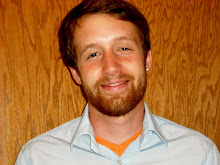We were awoken with word of travel. The safari for the day to the Kilosa district had been approved. The first stop was to Morogoro market where we picked up half a jeep full of food for the people stuck in hiding who have lost everything. There was a nervousness about everything today. A tangible urgency which bespoke the seriousness and solemnity of the day surrounded the vehicle. Conversation mostly stuck to the situation in the Kilosa district. Pastor Hafermann told us, "The higher ups and government folk say that it is fine now, that nothing is happening. I wouldn't be so sure." The paper has been considerably one sided thus far, placing the blame primarily upon the Masai people. There are also tales circulating outside of the papers which rumor that Masai have been killing pregnant women and tearing the babies from the belly. This is all completely false. As a general rule the Masai are very gentle people and if there was really a problem they respect life enough to run someone through with a spear rather than perform cruelties as above. The trip today had three purposes: Advocate so the Masai can stay in the area, ensure food and water for when they get to stay, and dispel rumors and advocate for peace.
As we drove through the Waswahili area we were met by quizzical and grim faces. As if everyone was asking, "Why would you go there. They are killers, you know." If only they would have known of the food for the people in the back of the vehicle. The faces and the eerie fact that there were no Masai to be seen anywhere, even until we came right to the church drove Hafermann to admit, "Even I feel uncomfortable." Cattle wander with no herders because they are hiding. The current crisis couldn't have come at a worse time. The ground is dry and dusty with drought. On their own, the cattle have little chance. Not to mention the people.
Upon our arrival we were greeted only by the evangelists and a couple of older warrior age men. Only one was wearing the traditional garb. It is much easier to hide if the clothes do not betray the man. We discussed the problem and quickly learned the truth. There was a land dispute and a young Masai man was shot to death by a group of farmers. The boy's friends watched him die instantly and immediately rose against the killers, in passion, killing six. There was no premeditated revenge on the part of the Masai as the news is falsely reporting. Soon, seven giant truck loads of cattle were stolen. The regional commissioner soon came out with a statement stating his desire to take the land and turn it into a national park (it would be a sorry one). The army came into the village to bring "justice" and behind them came the thieves. These people, men, women and children, have nothing now. Families entire cattle and goat herds have been stolen along with food and other goods. No one does anything about the farmers who began the problem and have brought it to a long term deadly place. They are just concerned about the warrior boys. The "trouble-makers."
We walked to see where they had hidden the little food that they managed to keep and as we were walking we all stopped to watch a large flatbed speed deep into the village. This particular truck has come into the village every day to steal but the Masai can do nothing about it. That would dig their hole deeper. These people are watching as they are forced out of their government given land and slowly killed by thievery. Yet there is a hope there. An indescribable hope. People, mostly women and a few elders came out of hiding hesitantly and watched everything around them with suspicion. This gave way to joy as they were able to come together as a community for something positive-to be the Church together-for the first time in a long time. The Church is full of women, who are generally safe. They laugh and talk and welcome us. The love and relief is sweet as we breathe each other in inside of that warm church building. Life as normal in this situation brought so much peace and relief. I understand now more than ever the purpose of the living Church. I have never seen a people so desperate for community.
We sped through the service as we were told that the women want to return to hiding. When we came to communion the Exodus came into mind. The NRSV says that the Hebrews were "driven out" after the final plague. This being so, they didn't even have time to let their bread rise. I have never appreciated eating the wafers more than now. These people are being forced out by Pharaoh but have paused for each other and for God. Not out of blind obedience but out of necessity. Beautiful. Painfully, refreshingly, mystically beautiful. We joined in unity over the eucharist, ended the service. Rejoiced and thanked God together outside as we spoke for a while and played with many of the kids while Pr. Hafermann and Luka worked out the distribution.
I will write about hospitality meeting desperation tomorrow.

No comments:
Post a Comment